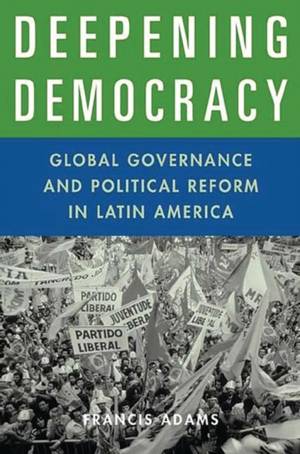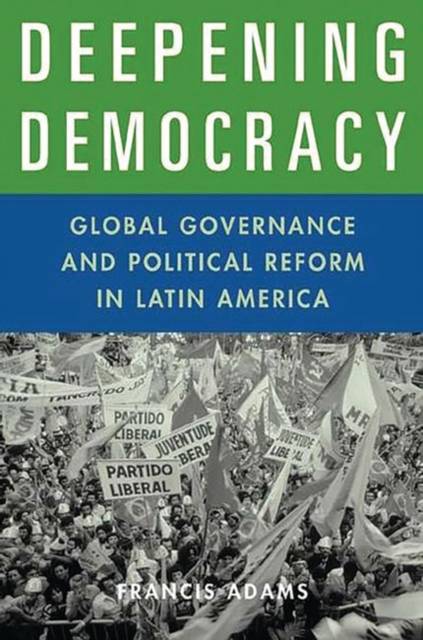
- Retrait gratuit dans votre magasin Club
- 7.000.000 titres dans notre catalogue
- Payer en toute sécurité
- Toujours un magasin près de chez vous
- Retrait gratuit dans votre magasin Club
- 7.000.000 titres dans notre catalogue
- Payer en toute sécurité
- Toujours un magasin près de chez vous
Deepening Democracy
Global Governance and Political Reform in Latin America
Francis AdamsDescription
Adams surveys the impact of transnational organizations and NGOs on Latin American politics since 1990. The transition from military to civilian rule in Latin American countries has benefited local progressive forces, but resilient remnants favoring the past's authoritarian politics have compelled organizations like the UN, IMF, OAS, and World Bank to engage in various campaigns to deepen democratic institutions and norms. Adams argues that to understand current political transformations in the region, one must consider the existing role of external organizations. Latin America is offered as a prime example of the increased influence transnational authorities have over political decisions that had long been the exclusive prerogative of national governments.
Beginning with the Latin American experience, Adams reviews the contemporary character of power and politics in the area, outlining how democratic transitions have been limited. UN human rights and reform initiatives are considered. Adams scrutinizes the work of the World Bank, the IMF, and the Inter-American Development Bank to modernize public administration, strengthen political institutions, enhance transparency and accountability, and fortify civil society. He also examines the work and impact and the Organization of American States and various global citizens groups.Spécifications
Parties prenantes
- Auteur(s) :
- Editeur:
Contenu
- Nombre de pages :
- 184
- Langue:
- Anglais
Caractéristiques
- EAN:
- 9780275970383
- Date de parution :
- 30-05-03
- Format:
- Livre relié
- Format numérique:
- Genaaid
- Dimensions :
- 156 mm x 234 mm
- Poids :
- 435 g







